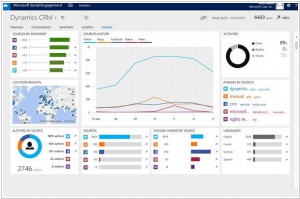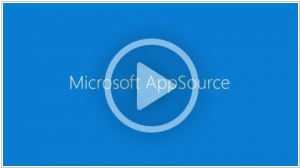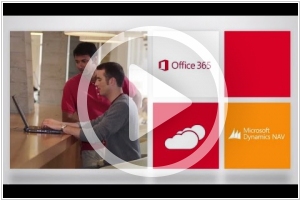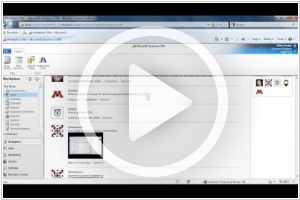Microsoft Dynamics 365 is #4 in Top 10 Online CRM software
With intelligent business applications across CRM and ERP, Microsoft Dynamics 365 gives you choice. Start with just what you need to run your business—and delight your customers. And then add apps as your needs change.
Positions in ratings
#4 in Top 10 Online CRM software
#5 in Top 17 Online ERP software
#6 in Top 20 Marketing software
Alternatives
The best alternatives to Microsoft Dynamics 365 are: Salesforce, SAP ERP, NetSuite, HubSpot, Oracle ERP, Zoho CRM
Latest news about Microsoft Dynamics 365
2023. Microsoft brings an AI-powered Copilot to Dynamics 365
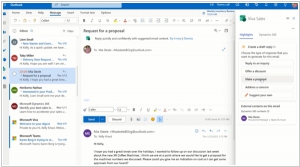
Microsoft is introducing a new AI tool called Copilot, which aims to automate repetitive tasks in sales and customer service. In applications such as Dynamics 365 Sales and Viva Sales, Copilot can assist in composing email responses to customers and generate an email summary of Teams meetings in Outlook. The meeting summary incorporates information from the seller's CRM, including product details and pricing, and combines them with insights gathered during the recorded Teams call. In Dynamics 365 Customer Service, Copilot can draft "contextual answers" for customer queries in chat or email formats. It also provides an interactive chat experience for customer service agents, drawing from knowledge bases and case history. Additionally, Microsoft's AI Builder tool features a new "GPT" model that enables organizations to integrate text-generation capabilities into their Power Automate and Power Apps solutions, complementing the conversation boosters provided by Copilot.
2021. Microsoft announces new tools to modernize supply chain and manufacturing
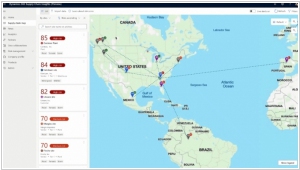
Microsoft is introducing the Microsoft Cloud for Manufacturing, a new solution tailored for the manufacturing industry. Additionally, they are launching Dynamics 365 Supply Chain Insights, a tool that enhances supply chain visibility and provides intelligence to address issues proactively. The manufacturing cloud aims to gather signals and alert manufacturers about potential supply shortages, while the Supply Chain Insights tool helps identify and resolve issues along the supply chain before they become bottlenecks. Together, these solutions enhance agility and flexibility for manufacturing companies.
2020. Microsoft introduced its customer data platform inside Dynamics 365
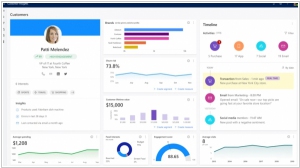
Microsoft has made a significant announcement regarding its Dynamics 365 product line, in response to the growing volume of enterprise data and the need to collect and analyze it effectively to enhance customer experiences. The company is introducing new features to its customer data platform (CDP), a concept that has gained traction among major vendors and a growing number of startups. The CDP consolidates customer data from various systems into a single location, simplifying the understanding of customer interactions. The ultimate objective is to leverage this knowledge to deliver enhanced customer experiences. Microsoft's CDP is known as Customer Insights. It is important to note that Microsoft is not the only player in this domain. Other prominent companies like Adobe, Salesforce, and SAP offer similar products for similar reasons, as part of their marketing toolsets.
2018. Microsoft launches new AI applications for Dynamics 365 CRM
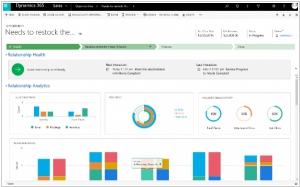
A year ago, Microsoft made its debut in the field of AI solutions with its first offering in the Dynamics 365 portfolio. Today, Microsoft is expanding this portfolio by introducing three new products: Dynamics 365 AI for Sales, Customer Service, and Market Insights. Dynamics 365 AI for Sales is designed to empower sales teams by providing them with deeper insights into their prospects through sentiment analysis. While sentiment analysis may be considered a fundamental application of machine learning, AI for Sales goes beyond by assisting salespeople in determining the appropriate actions to take and prioritizing prospects effectively. Similarly, the Customer Service application employs natural language understanding to comprehend and predict customer service issues, leveraging virtual agents to reduce costs. Lastly, Dynamics 365 AI for Market Insights fulfills its name by equipping teams with valuable data on social sentiment, but it goes a step further by offering more comprehensive insights.
2017. Microsoft integrated LinkedIn with Dynamics 365

Microsoft has unveiled significant integrations between its acquired professional social network, LinkedIn, and Microsoft Dynamics 365, the company's comprehensive CRM and ERP suite. These integrations bring forth several noteworthy enhancements. Firstly, Microsoft is bridging the gap between Dynamics 365 and the LinkedIn Sales Navigator tool, enabling sales professionals to leverage LinkedIn's extensive database of 500 million users. This integration empowers sales teams with valuable insights and connections to enhance their customer engagement strategies. Furthermore, Microsoft is introducing a specialized tool within Dynamics 365 for HR professionals, known as Dynamics 365 for Talent. This tool enables users of Dynamics 365 ERP to seamlessly access LinkedIn's Recruiter and Learning solutions. HR professionals can now conveniently search for new talent directly from LinkedIn and effectively manage employees throughout their entire journey with the company, from recruitment to ongoing development and engagement. By merging the power of LinkedIn and Microsoft Dynamics 365, Microsoft aims to provide enhanced capabilities for sales teams and HR professionals, fostering improved customer relationship management and talent acquisition processes. These integrations signify Microsoft's commitment to delivering comprehensive solutions that streamline business operations and leverage the vast potential of professional networking platforms.
2016. Microsoft Dynamics 365 became generally available
Microsoft has officially launched Dynamics 365, a comprehensive cloud solution that combines its ERP and CRM functionalities, positioning itself as a direct competitor to Salesforce. With pricing starting at $70 per user per month, Dynamics 365 offers a web interface as well as a mobile app and can also be seamlessly integrated within the familiar Outlook applications. In this release, Microsoft has incorporated intelligent features specifically designed for sales and service professionals. The first is Customer Insights, an independent cloud service that enables users to aggregate diverse internal and external data sources, including platforms like Facebook and Trip Advisor. The second feature, Relationship Insights, equips salespeople with real-time information about the state of their customer relationships. Powered by the Cortana Intelligence Suite, which Microsoft introduced in 2015, Relationship Insights utilizes tools such as sentiment analysis to assess the likelihood of closing a deal and determine the best course of action. Microsoft has taken steps to consolidate its artificial intelligence tools into a cohesive division, aligning with the industry trend of integrating intelligence into various product offerings, extending beyond CRM vendors alone.
2016. Microsoft to merge CRM and ERP into integrated cloud platform Dynamics 365
Microsoft has unveiled its plans to integrate the Dynamics CRM and ERP products into a cohesive platform called Dynamics 365. This integrated platform aims to provide a foundation for third-party developers to build applications. Dynamics 365 will be closely connected to the cloud office suite, Cortana voice intelligence, and PowerBI data visualization. To simplify this comprehensive system, Microsoft is offering individual applications that sit atop the platform. These include finance, field service, sales, operations, marketing, project service automation, and customer service applications. Furthermore, Microsoft has introduced Microsoft AppSource, an app store where developers can create and distribute their own applications, offering a comprehensive solution. The store will initially feature over 200 apps developed by early adopters.
2016. MS Dynamics CRM update targets IoT

Microsoft has introduced the Spring 2016 Wave update for its Dynamics CRM, which plays a vital role in the company's digital transformation strategy. This latest version of Dynamics CRM aims to deliver personalized, proactive, and predictive customer experiences. Notably, the update acknowledges the significance of the Internet of Things (IoT) by introducing Connected Field Service, a preview offering that seamlessly integrates IoT capabilities into field service operations. Connected Field Service empowers enterprises to monitor IoT-connected devices, identify anomalies, and generate alerts that trigger automated responses to address potential issues or risks. By leveraging this technology, businesses can efficiently match the availability and proximity of skilled service technicians equipped with the necessary tools to customer locations, enabling them to take preventive action when required.
2015. Microsoft Dynamics CRM 2016 - the most comprehensive upgrade ever

Microsoft is touting the upcoming release of its Dynamics CRM 2016 (scheduled for Q4) as the most extensive upgrade to date. The product has undergone a complete redesign, with significant enhancements made to both the on-premises and cloud versions. The forthcoming version highlights four key areas: productivity, mobility, intelligence, and customer service. In addition, Microsoft announced CRM for Outlook, which seamlessly integrates with the Microsoft email platform—where many salespeople spend their workdays. It's important to note that although this is a significant release announcement, the company has been continuously updating the cloud version of the product. This announcement represents the culmination of those efforts, while on-premises users will experience these updates for the first time.
2014. Microsoft quietly launches Dynamics NAV ERP apps for iPad, Android, Windows 8
Microsoft's Dynamics team has released client apps for iPad, Android, and Windows 8.x, specifically designed for Dynamics NAV. These new client apps are available for free but require Microsoft's Dynamics NAV ERP to be installed on the backend. The available features in the client apps vary depending on the version of the Dynamics NAV server apps being used. Microsoft has set its sights on launching the latest major release, Dynamics NAV 2015, before the end of this year. Dynamics NAV, one of Microsoft's four ERP apps, primarily targets small business users. Earlier this year, the Dynamics AX team also introduced a touch-first Modern/Metro-Style shop-floor control app for Windows 8.
2014. Microsoft Dynamics CRM adds social media marketing features
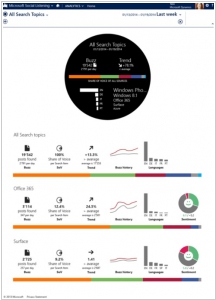
Microsoft has unveiled enhanced features in marketing, customer care, and social listening for Dynamics CRM. These new updates are seamlessly integrated with various Microsoft services, including Office 365, Yammer, Lync, Skype, SharePoint, and Power BI for Office 365. With Microsoft Social Listening, users gain the ability to monitor social conversations in real-time, gathering valuable feedback on their brand, products, competitors, campaigns, and relevant business issues. In the realm of marketing, Microsoft made a strategic move by acquiring MarketingPilot in October 2012. Noteworthy acquisitions by other major players include Oracle's purchase of Responsys, Salesforce's acquisition of ExactTarget, and Adobe's successful acquisition of Neolane last year. Comparatively, Microsoft's entry into the marketing landscape showcases its commitment to providing comprehensive solutions in this field.
2013. Microsoft Dynamics CRM Online adds iPad, Yammer support
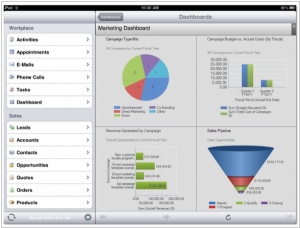
Recently Terrasoft released mobile (iOS and Android) apps for its BPMonline CRM, and may be it remembered to Microsoft that the users of its CRM system also want to have a normal mobile access to customer data. Microsoft promised to release the mobile client for Microsoft Dynamics CRM back in May 2012, then at the end of the last year, then by February 2013. It's now March and Microsoft has really launched something. But it's not a full-fledged mobile app, but just a web interface for the iPad browser, which of course, can't work offline and has many limitations. When the normal mobile CRM app will appear? Microsoft promises "in the first half of this year." ***
2011. Microsoft Dynamics AX 2012 adds cloud services

MBS President, Kirill Tatarinov (at the left) plays with Dynamics AX 2012 via Kinect ***
2011. Vibe - social layer for MS Dynamics CRM
Microsoft's own enterprise Twitter clone called OfficeTalk is rumored to appear soon. But rumors are rumors, and meanwhile MS Dynamics CRM users look with envy at Salesforce users who have the free Chatter. However, now they also get an option. Sonoma Partners (Microsoft's implementation partner) today announced the ***
2011. MS Dynamics CRM Online is available globally
Probably it's the first time in Microsoft's history, when SaaS version of a product appears before the in-house version. Yesterday the company launched the SaaS version of its CRM system Microsoft Dynamics CRM Online 2011. The in-house version will appear only on February 28 (it turned out that it needs more testing). But most importantly, SaaS version, which untill now was available only in the U.S. and Canada, has been translated into 40 languages and is now available in 40 countries. : Austria, Australia, Belgium, Brazil, Canada, Colombia, Costa Rica, Chile, Cyprus, Czech Republic, Denmark, Finland, France, Germany, Greece, Hong Kong, Hungary, India, Ireland, Israel, Italy, Japan, Luxembourg, Malaysia, Mexico, Netherlands, New Zealand, Norway, Peru, Poland, Portugal, Puerto Rico, Romania, Singapore, Spain, Sweden, Switzerland, Trinidad and Tobago, the United Kingdom, and the United States. ***
2010. Microsoft plans to provide Dynamics ERP as SaaS service
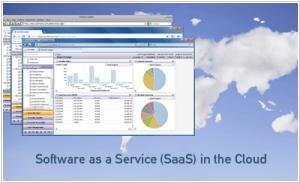
Michael Park, Corporate Vice President of Microsoft’s Business Solutions team, shared some plans about the future of company's SaaS suite Microsoft BPOS. BPOS (Business Productivity Online Services) currently includes MS Exchange Online, MS SharePoint Online, MS Office Communications Online and Office Live Meeting. And Microsoft is going to add Dynamics CRM and Dynamics ERP to this package. While it's no surprise with CRM (Microsoft has been providing the SaaS version Dynamics CRM Online for quite a long time), the SaaS ERP from Microsoft - is something new. Today some Microsoft partners are already providing vendor's ERP solutions as hosted services, but Microsoft never told about the release of the own SaaS ERP version. ***
2010. Microsoft sues Salesforce.com. SaaS industry in danger

This week, Microsoft filed a lawsuit against Salesforce, blaming the SaaS company in violating 9 patents. These patents are not about CRM functionality (it would be strange, because Salesforce CRM appeared earlier than Microsoft CRM was developed), but about basic software technologies. For example, here is the technology of displaying web-page with embedded menu: "A request for a web page is received from a web browser In response to the request, a web page and an applet associated with the web page are packaged for transmission to the web browser. The web page and the applet are then transmitted to and downloaded by the web browser. When the web page is displayed and the applet is executed by the web browser, the applet creates and manages an embedded menu in the displayed web page under control of the applet . This embedded menu provides a user of the web browser with a plurality of links through one action in the displayed web page." Perhaps having this patent, Microsoft could close any SaaS vendor, but they have chosen Salesforce, their main competitor on CRM market. ***
2009. ZoomInfo will become a data source for MS Dynamics CRM
Microsoft's Dynamic CRM will soon benefit from the integration of ZoomInfo's powerful enterprise search engine. ZoomInfo specializes in extracting business information about companies and individuals from various online sources, including press releases and corporate websites. With its advanced intelligence algorithm, ZoomInfo can even differentiate between individuals with the same name. By incorporating ZoomInfo's search capabilities, Microsoft's Dynamic CRM can identify new sales leads, enhance data on existing customers, generate more qualified leads, and serve as a unified data source for sales and marketing teams. This partnership follows ZoomInfo's successful collaborations with Sugar CRM and Salesforce.com, solidifying its position among top business search engines and ensuring continued competitiveness in the market.
2008. Microsoft CRM Online: not so sharp
Let me begin by reluctantly congratulating Microsoft on the launch of CRM Online and for recognizing the need to completely restructure its software to offer it on-demand. Tim O'Brien, Microsoft's senior director of platform strategy, revealed during a media briefing that Dynamics CRM is the first product to undergo such a re-architecting process for multitenancy, requiring a complete rewrite of the program. Although Microsoft is heading in the direction of re-architecting other applications like Exchange and SharePoint, they are not as far along in the process. The key actions involved in multitenancy re-architecting include supporting millions of users, partitioning user content, enabling high levels of client-side configuration, and preventing system disruptions caused by individual customers. While these efforts are commendable and Microsoft's market presence can contribute to CRM Online's success, I disagree with the notion that it will pose a significant challenge to Salesforce.com this year. The claim that customers have the freedom to choose between hosted and on-premise options seems dubious, considering the software's optimization for multi-tenancy. Additionally, the integration with Office and other on-premise Microsoft products may not be as compelling as it seems, as it highlights the flaws in the software-plus-services strategy where the service remains subordinate to on-premise server products. Microsoft's supposedly low-cost pricing for CRM Online loses its advantage when the expenses of integration servers required to connect desktop and on-premise applications with online services are taken into account. While customers already committed to the Microsoft infrastructure may find CRM Online reasonably priced, this strategy is unlikely to attract customers away from Salesforce.com. It resembles a reversed razor and blades business model, where Microsoft offers affordable razor blades to profit from selling locked-in razors.
2008. Microsoft Renames CRM Service
According to a Microsoft official, the company is rebranding its on-demand CRM offering from CRM Live to Microsoft Dynamics CRM Online. Brad Wilson, the general manager of Microsoft Dynamics CRM, stated that the name change aims to differentiate Microsoft's consumer-focused products from its business-focused offerings. The new Online brand reflects Microsoft's investment in on-demand technology for business users, while the Live brand remains focused on consumers and small businesses. Wilson emphasized that the name change does not impact the product release dates, target markets, channel strategy, or pricing. Currently, over 500 early-access customers are using CRM Online, and it is scheduled for a broad launch in the second quarter in the U.S. and Canada.
2007. Microsoft’s Live CRM Tool Priced Lower than Salesforce
Microsoft has revealed new information about its upcoming Dynamics Live CRM tool, positioning it as a competitor to Salesforce.com and an upgraded version of its existing Dynamics CRM product. One of the key differentiators is the pricing strategy, with Dynamics Live set to be offered at a significantly lower cost than Salesforce, with monthly fees of $44 for the professional version and $59 for the enterprise version per user. While still not inexpensive, it is more affordable compared to other options. Additionally, Microsoft is introducing a revenue-sharing model, allowing industry partners to earn a portion of the annual revenue generated from subscriptions. Unlike traditional software, this web-based service does not require installation, aligning with Microsoft's broader business and marketing approach for its software brands on PCs. This strategic move represents Microsoft's larger vision of expanding into a more comprehensive network, offering a suite of integrated solutions for personal and social tools online and on the desktop. It also signifies a shift towards ad-based models that deviate from the traditional way of conducting business.
2006. Microsoft plans 'Live' CRM service
Microsoft has announced its plans to introduce a new hosted customer relationship management (CRM) service called Microsoft Dynamics CRM Live. Expected to launch in mid-2007 as part of the larger product release called Titan, this on-demand CRM solution will offer an alternative to the traditional on-premise software. The announcement was made by Steve Ballmer, Microsoft's CEO, at the Worldwide Partner Conference, emphasizing the company's ambitions in the business software market. The move is seen as a strategic step for Microsoft to compete with rivals like Oracle, Salesforce.com, and SAP in the CRM space. Microsoft will host the CRM Live service in its own data centers, providing a platform in the cloud that aligns with its broader Live brand initiatives. While pricing details were not disclosed, Microsoft aims to be competitive in the market and enable easy adoption for customers and partners. Ballmer also discussed Microsoft's priorities in other areas, including business intelligence, search, unified communications, and security.
2005. Microsoft to ship CRM 3.0 update in December
Microsoft has announced that its long-awaited update to customer relationship management software, Microsoft CRM 3.0, will be released in the first few weeks of December, earlier than initially expected. The update includes marketing management and service scheduling features in addition to the existing sales and customer service tools. A significant change is the introduction of a hosted version of the software, which will be offered by Microsoft's partners as a web-based service. The traditional version of the software will still be available for customers to install on their own servers. Competitors such as Salesforce.com and Siebel Systems already offer hosted CRM solutions. The pricing for the hosted version will be determined by partners and will be announced next month. Microsoft's approach relies on its partner network to provide tailored solutions in local markets, contrasting with competitors who offer a more standardized CRM model. Salesforce.com CEO, Marc Benioff, countered this by highlighting the customizability of their offering and the upcoming launch of AppExchange, a platform for customers to share customizations and add-on features.
2005. Microsoft previews next-generation CRM
Microsoft has unveiled Microsoft CRM 3.0, the highly anticipated update to its customer relationship management software, during its Tech Ed 2005 conference and Worldwide Partner Conference 2005. The release marks the second major version of Microsoft's CRM applications, with the previous one introduced in 2003. Microsoft's CRM 3.0 offers new tools and introduces the option of on-demand delivery, allowing customers to access the applications through subscription-style pricing and web-based delivery. The update focuses on enhancing functionality, improving ease of use, and building stronger connections with Microsoft Office. Additional features include marketing automation tools, increased support for specialized applications, expanded customization options, and integrated scheduling tools. Microsoft aims to cater to small and medium-sized businesses by providing various delivery options and flexibility for customers.

